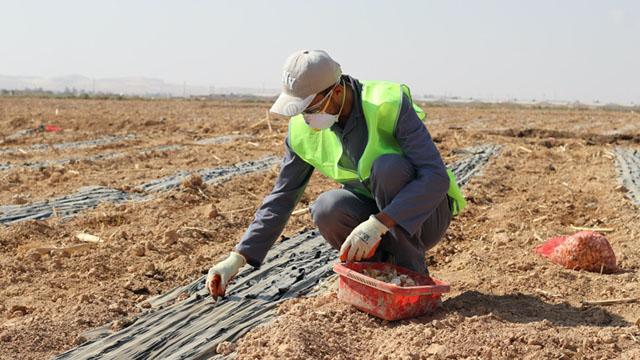You are here
Labourers expected to experience hardships from COVID-19 crisis - economists and experts
By Rana Husseini - May 28,2020 - Last updated at May 29,2020
AMMAN — Economists and experts on Thursday said labourers are expected to experience hardships as a result of the COVID-19 crisis that is expected to increase the unemployment rate in Jordan.
The economists were commenting on figures released by the Department of Statistics (DoS) on Thursday for the first quarter of this year, which indicated a 0.3 per cent increase in the unemployment figures in Jordan in comparison to last year’s first quarter.
The unemployment rate stands at 19.3 per cent, according to DoS, representing 18.1 per cent men and 24.4 women.
“These indicators reflect the reality and dynamics of the labour market and unemployment rates in Jordan even before the impact of the COVID-19 crisis,” said Ahmad Awad, director of Phenix Centre for Economic Studies and Informatics Studies.
Awad told The Jordan Times that the figures indicate that unemployment rates in Jordan were “in an upward swing before the crisis”.
“We have constantly warned about the increase,” Awad added.
The economist said he expects the repercussions of the COVID-19 crisis to be reflected on indicators of unemployment for the second quarter of 2020, as various indicators indicate that the labour market has suffered a deep shock that had major effects on its various dynamics, and the unemployment indicators are expected to increase significantly”.
There is a need to introduce special economy stimulation package across the sectors so that companies do not lose more employees, industrialist and economist Musa Saket said.
“We need to inject cash so that companies would not go out of business and let go of their employees,” Saket told The Jordan Times.
Meanwhile, the International Labour Organisation (ILO) issued a press release indicating that more than one in six young people have stopped working since the onset of the COVID-19 pandemic while those who remain employed have seen their working hours cut by 23 per cent.
According to the ILO Monitor: COVID-19 and the world of work: 4th edition, youth are being disproportionately affected by the pandemic, and the substantial and rapid increase in youth unemployment seen since February is affecting young women more than young men, the ILO press release stated.
The monitor calls for urgent, large-scale and targeted policy responses to support youth, including broad-based employment/training guarantee programmes in developed countries, and employment-intensive programmes and guarantees in low- and middle income economies.
Patrick Daru, ILO Representative at the Jordan Office, said it is important to focus on the changes that have happened in the labour market starting with COVID-19.
"We surveyed 1,580 workers recently who benefited from ILO support in the recent past, and 47 per cent of them, employed before the lockdown, were out of work," Daru told The Jordan Times.
The ILO official added: "We are heading to major disruptions in global value chains, and tradable sectors are at risk. There is a need to rethink the economy after COVID-19 and ensure we build it back better, with more and better jobs".
Related Articles
AMMAN — Economy experts on Saturday called on the government to come up with an urgent economic plan to help the private sector, which is ex
AMMAN — Economist on Sunday warned that if the government fails to adopt measures that will boost the economy and encourage investment in Jo
AMMAN — Economists on Saturday welcomed the recent decisions by the Labour Ministry to boost the agriculture sector and eliminate all the ob
















